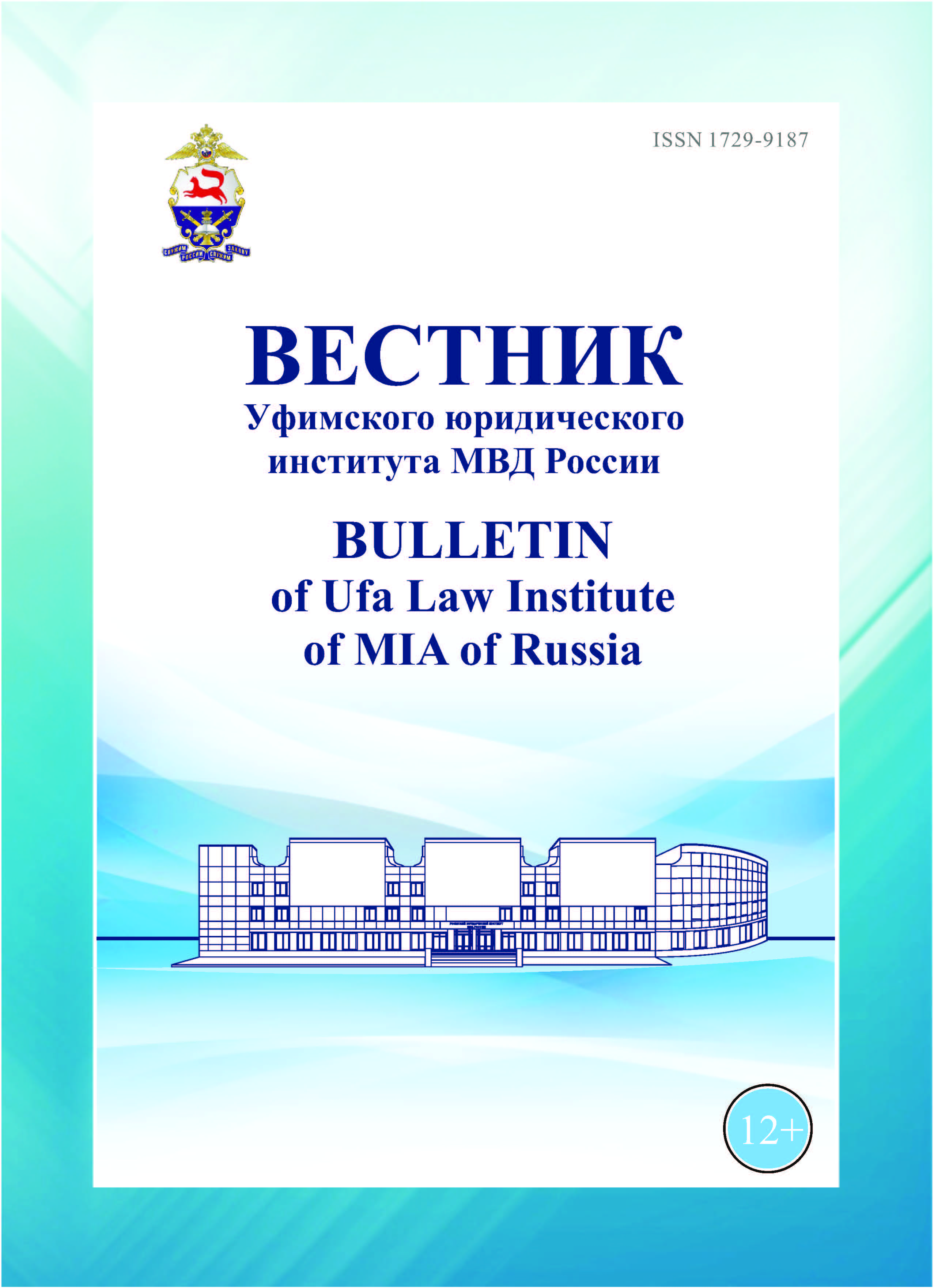UDC 343.14
Attention is drawn to the emergence in law enforcement practice of trends in the formation of ambiguous approaches to the use of derivative verbal information in proving. The most acute problem is manifested when evaluating the testimony of law enforcement officers, participants in criminal proceedings who received information while performing professional duties or procedural functions. The concept of derivative verbal information, its types, which determine the features of the assessment, is proposed. The question of the need to develop criteria for evaluating derivative evidence is raised, the criteria for evaluating derivative testimony of law enforcement officials based on verbal information received from the accused, suspect (suspected), in the exercise of official functions are substantiated.
derivative verbal information, derivative evidence, types of derivative verbal information, evaluation of derivative evidence, criteria for evaluating evidence, testimony of law enforcement officials
1. Rossinsky S. B. The results of operational investigative activities must be recognized as evidence in a criminal case // Judicial power and criminal process. 2018. No. 2. P. 111–119. (In Russ.)
2. Konin V. V. Derivative evidence in criminal proceedings // Lawyer. 2016. No. 6. P. 5–8. (In Russ.)
3. Galyashin N. V. On the applicability of the Anglo-Saxon model of derivative evidence (Hearsay) in the practice of modern criminal proceedings // Laws of Russia: experience, analysis, practice. 2014. No. 12. P. 79–85. (In Russ.)
4. Belkin R. S., Zhogin N. V. Theory of evidence in Soviet criminal proceedings. M., 1973. (In Russ.)
5. Kudin F. M. Derivative evidence and their sources in the Soviet criminal process: dis. ... Cand. of Law. Sverdlovsk, 1966. (In Russ.)
6. Smirnov A. V., Kalinovsky K. B. Criminal process / edited by. A. V. Smirnov. 2nd ed. SPb.: Piter. 2005. (In Russ.)
7. Trusov A. I. Fundamentals of the theory of forensic evidence. M., 1960. (In Russ.)
8. Cheltsov-Bebutov M. A. Soviet criminal trial. M., 1962. (In Russ.)
9. Semenov V. V. Procedural and forensic problems of using non-verbal information at the pre-trial stages of criminal proceedings: dis. ...Cand. of Law. Saratov, 2003. (In Russ.)
10. Pobedkin A. V. Theory and methodology of using verbal information in criminal procedural proof: dis. ... Doctor of Law. M., 2005. (In Russ.)
11. Finogenov N. A. Fixation of verbal information: procedural and forensic aspects: dis. ...Cand. of Law. M., 2010. (In Russ.)
12. Rossinsky S. B. Epistemological problems of distinguishing between verbal and non-verbal methods of cognition in criminal proceedings // Philosophy of Law. 2021. No. 2 (97). P. 99–106. (In Russ.)
13. Bostanov R. A. Use of derivative evidence in proving a criminal case // Legal science and practice: Bulletin of Nizhny Novgorod Academy of the Ministry of Internal Affairs of Russia. 2010. No. 1 (12). (In Russ.)
14. Novitsky V. A. Theory of Russian procedural evidence and law enforcement: monograph. Stavropol: SSU Publishing House, 2002. P. 202–203. (In Russ.)
15. Leontyeva O. G. Methods of proof with the participation of witnesses, which are usually not allowed // Lawyer’s practice. 2013. No. 6. P. 34–38. (In Russ.)
16. Trusov A. I. Judicial proof in the light of the ideas of cybernetics // Issues of cybernetics and law. M.: Nauka, 1967. (In Russ.)
17. Vlasova N. A. Criminal procedure: a course of lectures. M., 2001. (In Russ.)
18. Sklizkov A. N. The principle of immediacy of criminal proceedings: abstract. dis... Cand. of Law. Vladivostok, 2007. (In Russ.)
19. Vyshinsky A. Ya. Theory of judicial evidence in Soviet law. M., 1950. (In Russ.)
20. Pobedkin A. V. The principle of freedom to evaluate evidence and its influence on the legality of pretrial proceedings // Proceedings of the Academy of Management of the Ministry of Internal Affairs of Russia. 2017. No. 1 (41). P. 104–105. (In Russ.)









